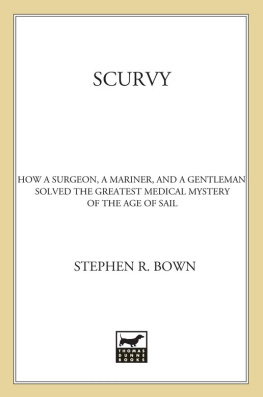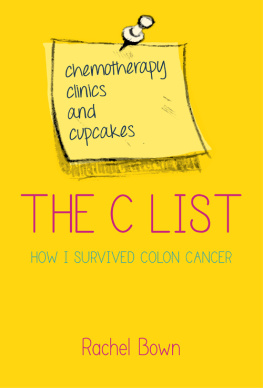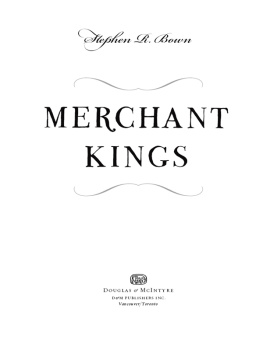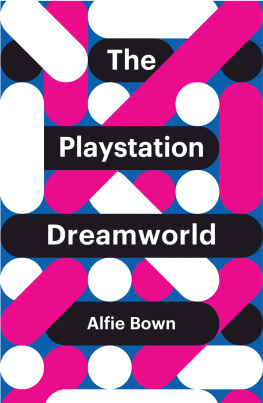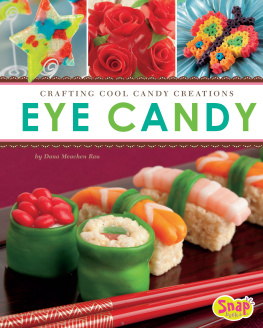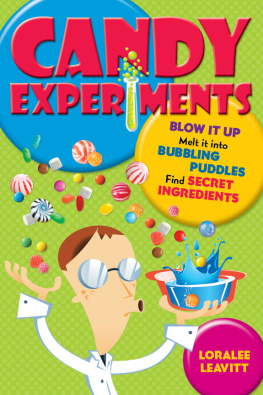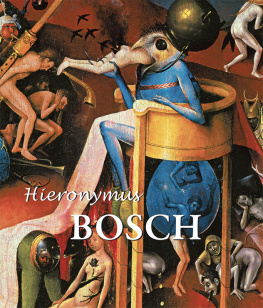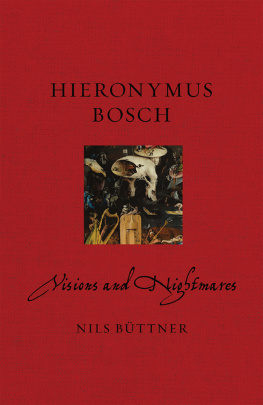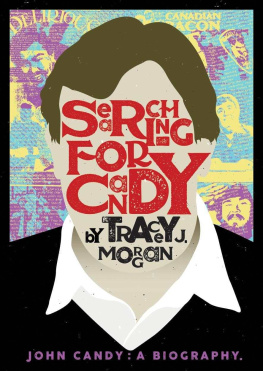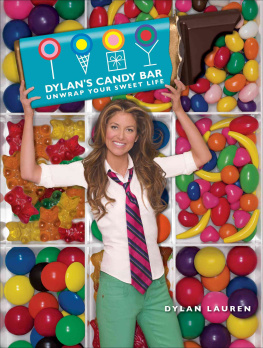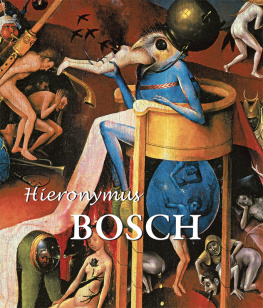Bown - Enjoying It: Candy Crush and Capitalism
Here you can read online Bown - Enjoying It: Candy Crush and Capitalism full text of the book (entire story) in english for free. Download pdf and epub, get meaning, cover and reviews about this ebook. year: 2015, publisher: John Hunt Publishing;Zero Books, genre: Romance novel. Description of the work, (preface) as well as reviews are available. Best literature library LitArk.com created for fans of good reading and offers a wide selection of genres:
Romance novel
Science fiction
Adventure
Detective
Science
History
Home and family
Prose
Art
Politics
Computer
Non-fiction
Religion
Business
Children
Humor
Choose a favorite category and find really read worthwhile books. Enjoy immersion in the world of imagination, feel the emotions of the characters or learn something new for yourself, make an fascinating discovery.

- Book:Enjoying It: Candy Crush and Capitalism
- Author:
- Publisher:John Hunt Publishing;Zero Books
- Genre:
- Year:2015
- Rating:4 / 5
- Favourites:Add to favourites
- Your mark:
- 80
- 1
- 2
- 3
- 4
- 5
Enjoying It: Candy Crush and Capitalism: summary, description and annotation
We offer to read an annotation, description, summary or preface (depends on what the author of the book "Enjoying It: Candy Crush and Capitalism" wrote himself). If you haven't found the necessary information about the book — write in the comments, we will try to find it.
Bown: author's other books
Who wrote Enjoying It: Candy Crush and Capitalism? Find out the surname, the name of the author of the book and a list of all author's works by series.
Enjoying It: Candy Crush and Capitalism — read online for free the complete book (whole text) full work
Below is the text of the book, divided by pages. System saving the place of the last page read, allows you to conveniently read the book "Enjoying It: Candy Crush and Capitalism" online for free, without having to search again every time where you left off. Put a bookmark, and you can go to the page where you finished reading at any time.
Font size:
Interval:
Bookmark:
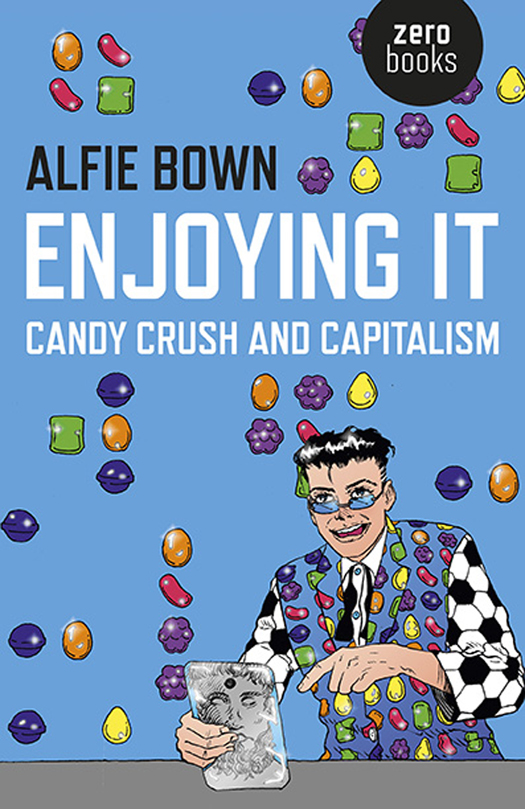
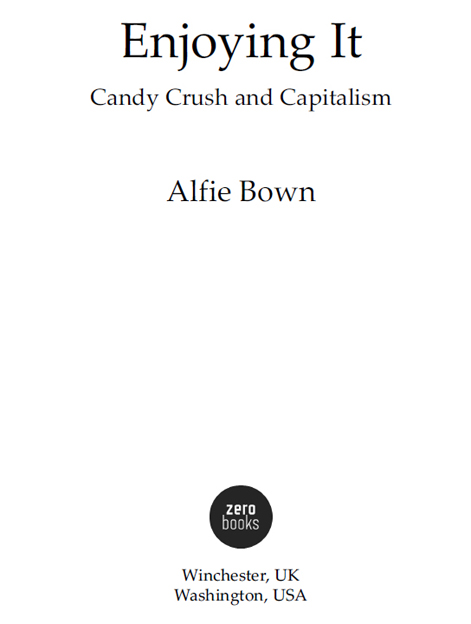
First published by Zero Books, 2015
Zero Books is an imprint of John Hunt Publishing Ltd., Laurel House, Station Approach,
Alresford, Hants, SO24 9JH, UK
www.johnhuntpublishing.com
www.zero-books.net
For distributor details and how to order please visit the Ordering section on our website.
Text copyright: Alfie Bown 2014
ISBN: 978 1 78535 155 6
Library of Congress Control Number: 2015941038
All rights reserved. Except for brief quotations in critical articles or reviews, no part of this book may be reproduced in any manner without prior written permission from the publishers.
The rights of Alfie Bown as author have been asserted in accordance with the Copyright, Designs and Patents Act 1988.
A CIP catalogue record for this book is available from the British Library.
Design: Stuart Davies
Printed and bound by CPI Group (UK) Ltd, Croydon, CR0 4YY, UK
We operate a distinctive and ethical publishing philosophy in all areas of our business, from our global network of authors to production and worldwide distribution.
Firstly I would like to thank my wife Kim, who I enjoy immensely and who has also given me many of the ideas that have gone into this book. Special thanks go to Doug Lain, for telling me an anecdote which confirmed to me that this was a book that needed writing. I would also like to thank the team at Everyday Analysis, who have tried to talk about enjoyment in as many ways as possible over the last few years. Further thanks go to James Smith for help with the manuscript and Joseph P. Kelly for the cover illustration. Finally, thanks to Jack Sullivan, Alexandre Pais and Tony Brown, for enjoying talking enjoyment with me many many times.
Alfie Bown is editor of Everyday Analysis, a blog and book series with Zer0 Books available at everydayanalysis.com. He teaches English Literature at The University of Manchester, and writes on critical theory and comedy. He has written for several non-academic publications as well, including The Guardian.
God demands a constant state of enjoyment, such as would be in keeping with the Order of Things.
Judge Schreber
I am really enjoying this: the process of writing an introduction to a short book on enjoyment. Im also looking forward to finishing the introduction, so that I can return to an on-going game of Football Manager that I am deeply invested in on my new smartphone, which I am also definitely going to enjoy. In the back of my mind is the possibility of having sex with my wife later, which is a pastime I can realistically hope to derive intense enjoyment from. Leaving behind any further over-sharing of the biographical details of the author, which have been enjoyable to share with the imaginary reader, this short book asks what, if anything, connects these forms of enjoyment? How can we discuss enjoyment and the differences between moments of enjoyment? What would be the politics of doing so? And why is this something we should do, or might enjoy doing?
The book argues that existing ways of discussing enjoyment in our culture are not only insufficient but politically dangerous. It argues that our language tends to organize enjoyment and place what we might call value-judgements on it, legitimating certain forms of enjoyment and dismissing others. This leaves us in a bizarre second wave of what 19th-century Victorian discourse called rational recreation, a project that attempted to impose and regulate leisure and enjoyment in order to contain and limit revolutionary potential in its dissatisfied and potentially subversive subjects.
In this book I look at this in light of 21st-century global capitalism, arguing that we now see a divide between what we might call productive and unproductive enjoyment. Productive enjoyment can be thought of as enjoyment which serves our cultural and social structures, even though this kind of enjoyment can often seem like the most radical or anti-establishment form of enjoyment going. A subject enjoying his or her job (be that as an accountant or as a writer for an anti-establishment paper) could be an obvious but complicated example. Unproductive enjoyment, on the other hand, is that which we tend to think of as completely mindless and, oddly, as completely and merely conformist (but which, I argue, can nevertheless contain a radical moments which change the social order). A game of Angry Birds would be an obvious but complicated example. This apparently unproductive enjoyment, rather than mindless and ineffectual, can be a site at which ideology is powerfully imposed on its subjects.
In light of the fact that much radical potential in unproductive enjoyment is ignored and much conformist compliance in productive enjoyment goes unnoticed, I suggest that we need another way of discussing differences in experiences of enjoyment. In other words, we must dispel the idea that it is necessarily preferable or doing any more good for anyone when the author of this book enjoys writing his introduction than when he enjoys a six-hour stint on Football Manager. This understood, we can look for moments of enjoyment and ways of talking about them that really might be able to do something to influence our current unarable political landscape.
Enjoyment serves many ideological purposes, a major one being to enforce cultural divides between subjects from various classes and backgrounds, grouping people by what they enjoy and preventing communication across these enjoyment-divides. A new way of thinking about enjoyment would look for moments of enjoyment that are able to cross class divides and operate at cultural intersections to create new forms of resistance to the structures that try to organize our pleasure. This book aims to discuss some types of enjoyment from Angry Birds to Aristotle without bringing a pre-conceived prejudice for one over the other. Whether the text in question is Grazia magazine, an interview with the singer of Gangnam Style or postmodern European critical theory, they are used, it is hoped, in conversation with one another and without bias for one over the other. The perceived gap between enjoying philosophy and enjoying a tabloid newspaper is too great and is one of the things this book hopes to work against.
The first chapter discusses the ways in which seemingly radical moments of enjoyment are often coded within capitalist discourse and can be a form of conformation and adherence to the very structures that they see themselves as resisting. It discusses the enjoyment of reading and what this shows about contemporary (and class-specific) enjoyment of things that carry cultural capital. As a kind of case study of this legitimate enjoyment, the chapter discusses critical theory and how it is read, consumed and enjoyed as a commodity, despite its attempts to be an anti-capitalist and subversive form of resistance.
The second chapter discusses enjoyment that is often dismissed as uninteresting and nothing other than a sort of opiate of the masses, leaving us in what Walter Benjamin described as modernitys culture of distraction.in the first chapter. Together they show us two sides of how enjoyment is organized in our culture and both work to construct modern capitalist subjectivity.
The third chapter offers a new way of approaching enjoyment which does not fall prey to organizing enjoyment into what is legitimate/illegitimate, or what is radical/conformist. Using a particular strand of contemporary psychoanalysis (a field that anyone interested in how their culture works could do with being more engaged with) it suggests that enjoyment can be something that resists organization in a unique and special way. In short, it argues that certain moments of enjoyment reveal to us how we are constructed as subjects of modern capitalism, forcing us into a radical realization of our place in capitalist discourse. Here I use the psychoanalytic ideas of Jacques Lacan to show that rather than us choosing our enjoyment, our enjoyment chooses us and plays a key role in constructing us as subjects. Finally, the book looks at the future of enjoyment and of discussing enjoyment in an optimistic hope that we might break out of some of the capitalist ranking of enjoyment currently limiting our approach to the things we enjoy.
Font size:
Interval:
Bookmark:
Similar books «Enjoying It: Candy Crush and Capitalism»
Look at similar books to Enjoying It: Candy Crush and Capitalism. We have selected literature similar in name and meaning in the hope of providing readers with more options to find new, interesting, not yet read works.
Discussion, reviews of the book Enjoying It: Candy Crush and Capitalism and just readers' own opinions. Leave your comments, write what you think about the work, its meaning or the main characters. Specify what exactly you liked and what you didn't like, and why you think so.

